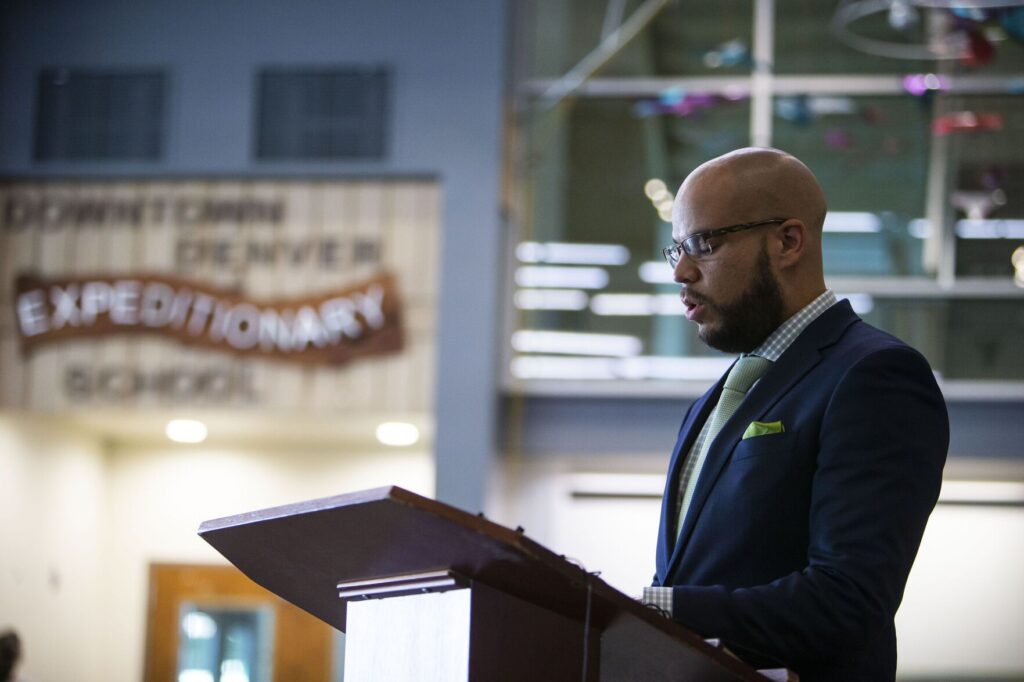THE PODIUM | Making it easier to charge your car


The benefits of switching to an electric vehicle can be enormous for Coloradans. Charging a new electric vehicle can save drivers in Colorado $800 to $1,000 every year compared to fueling a gas-powered vehicle. Plus, electric vehicle drivers are, on average, spending 50% less on repair and maintenance costs. That’s why it’s no surprise that seven in 10 U.S. adult drivers say they are interested in getting an electric vehicle (EV), with over 30% saying they might purchase one within the next year or two, according to our latest Consumer Reports survey. Thanks to Colorado’s adoption of the Zero-Emission Vehicle (ZEV) program, many will have that chance.
But not all consumers are poised to benefit yet. Coloradans who can’t charge at home, or don’t have easy access to public charging stations, won’t feel like they can own an electric vehicle, and therefore have fewer options. According to our new consumer survey data, a majority of adult U.S. drivers who live in large apartment buildings say that if they owned an electric vehicle, they would rely on public fast-charging stations to do most of their charging.
Changes are needed to accommodate this. New policies, new public fast-charging stations, and federal teamwork will be the keys to unlock the door to electric vehicle ownership for many in Colorado.
That’s why Xcel’s Transportation Electrification Plan is so critical and should be approved by Colorado’s Public Utilities Commission. The plan would help fund electric vehicle charging infrastructure in its service area, especially multi-family homes such as apartment and condo buildings. Building these chargers will take time, which is why it’s important for Colorado to start planning right away. By the time new policies are implemented and chargers are built, new lower-cost EVs will be hitting the market, and used EVs will be more readily available. This will help consumers across the economic spectrum access the benefits of electric cars, trucks and SUVs.
Colorado’s consumers need complementary policies too. Promoting and incentivizing EV-ready building codes would mean new buildings are prepared to accommodate electric vehicles. Streamlining permitting for new public fast chargers at the local level will send clear market signals to private companies looking to site and build charging infrastructure. Public-private partnerships such as the Clean Energy Fund could be a major driver of EV infrastructure, if sufficiently funded. Combined with federal purchasing incentive programs for vehicles and chargers, these policies, and Xcel’s plan, will further accelerate EV adoption, and allow consumers to access the significant cost savings that come with them.
The benefits of EV adoption go beyond financial benefits for consumers. Just as a household invests in a car or truck for work, so can Colorado invest in car and truck infrastructure to help put the state back to work. The National Renewable Energy Lab found that building electric vehicle charging stations and other infrastructure developments could help create 50,000 jobs per year, helping the economy as a whole. And electric vehicles use will also help to reduce global warming pollution and unhealthy smog in the state.
Ultimately, Colorado is on the precipice of a transportation revolution, and key policies as well as federal aid will help Colorado remain a marketplace leader in the Mountain West.
Alfred Artis is the west coast sustainability policy analyst for Consumer Reports.













